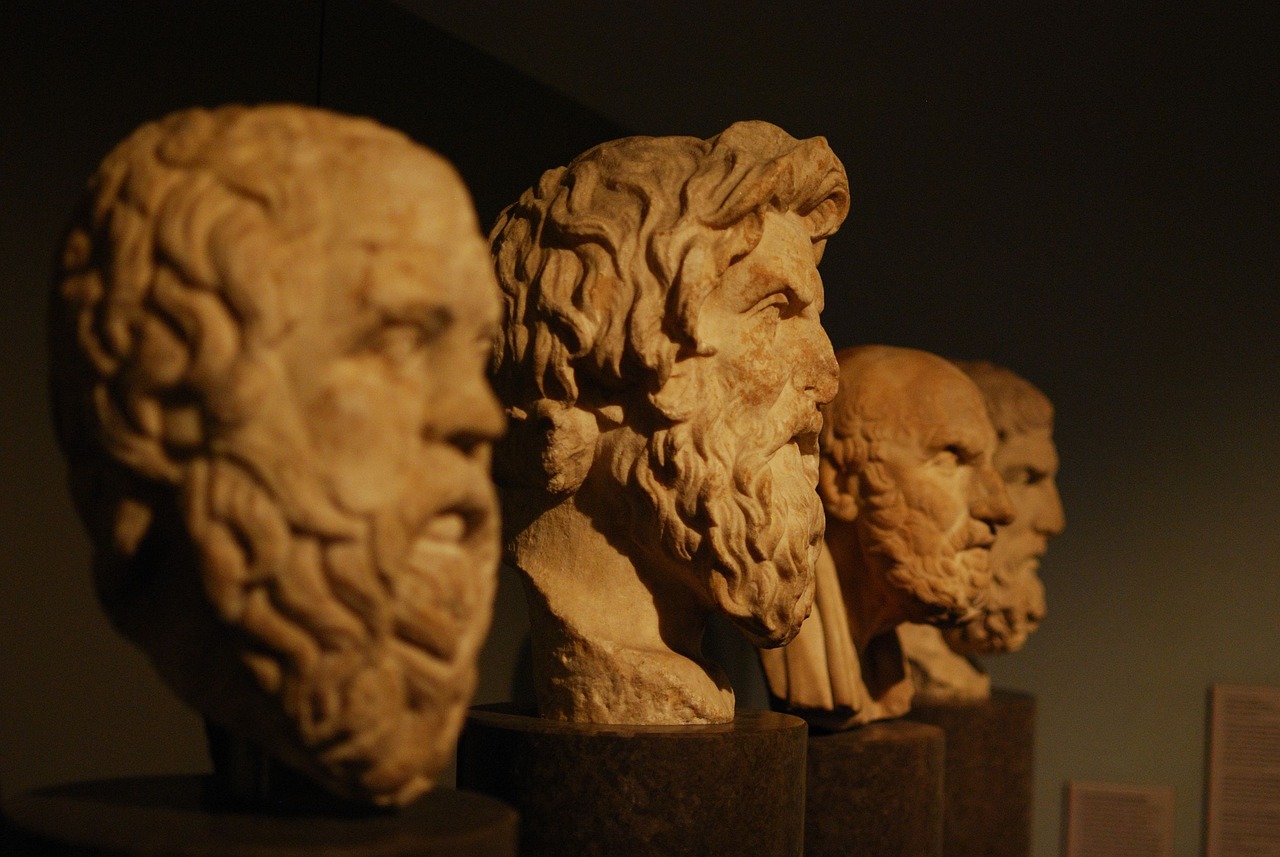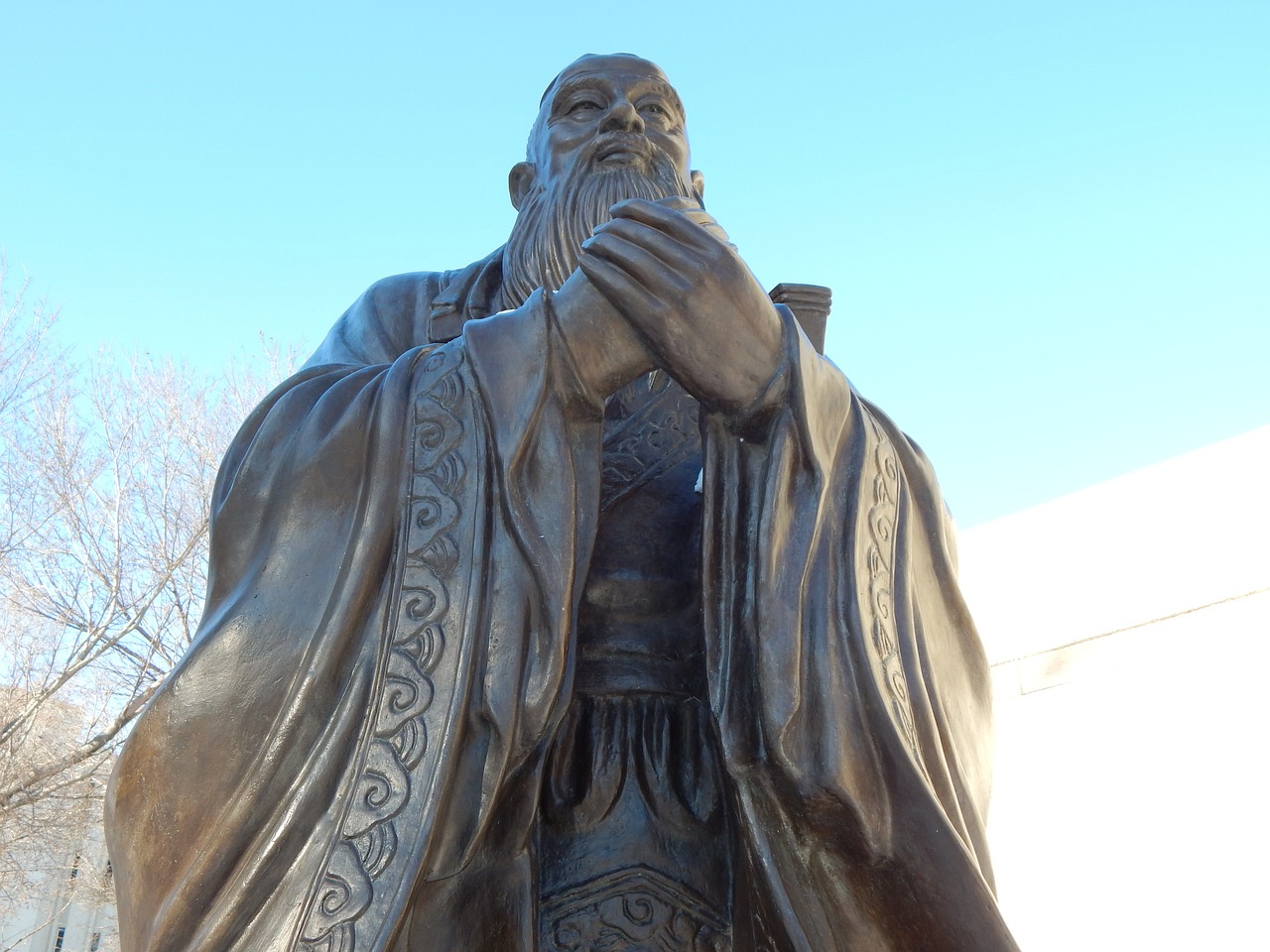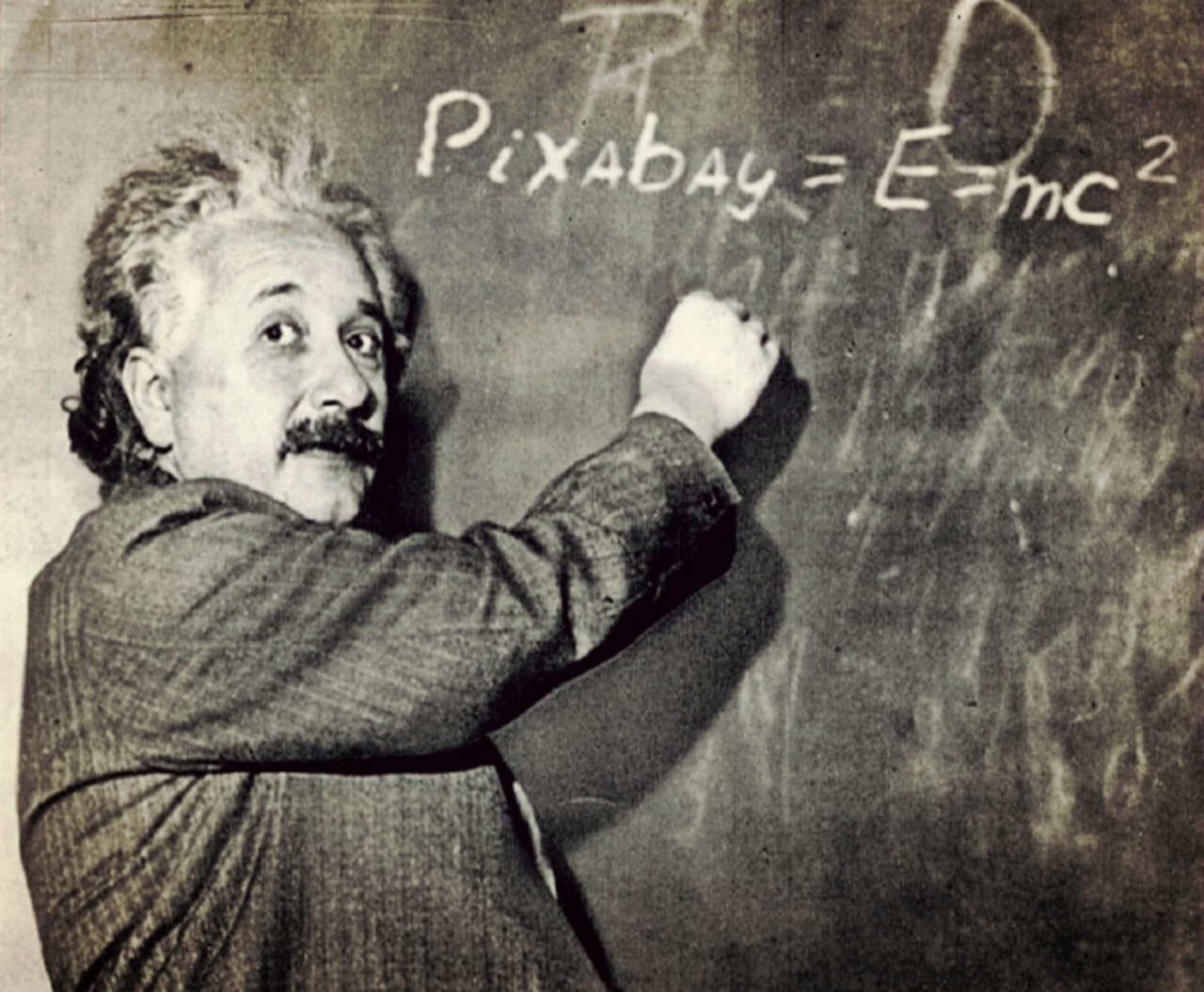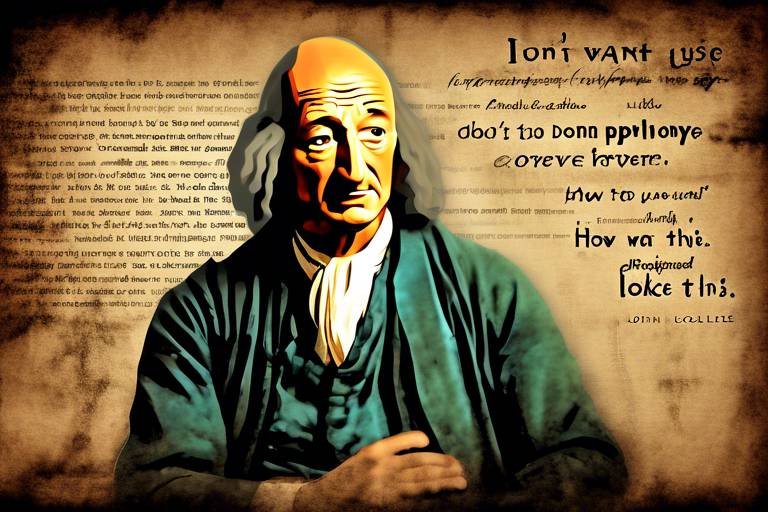The Relationship Between Philosophy and Physics
The intricate tapestry woven between philosophy and physics is nothing short of fascinating. At first glance, one might think of these two fields as distant relatives; philosophy, with its abstract questions and deep inquiries into existence, and physics, grounded in empirical evidence and the laws of nature. However, the truth is that they are intertwined in ways that can illuminate our understanding of both the universe and our place within it. Think of it as a dance where each partner influences the other's movements, creating a beautiful synergy that enhances our grasp of reality.
Throughout history, philosophical inquiry has shaped the development of scientific thought. Ancient philosophers like Aristotle and Plato laid the groundwork for modern physics by exploring fundamental questions about the nature of reality, causation, and the cosmos. Their ideas have not only persisted but have also evolved, becoming the bedrock upon which contemporary scientific theories stand. For instance, consider how Aristotle's concept of causality continues to resonate within the framework of modern physics, influencing everything from classical mechanics to quantum theories.
On the flip side, advancements in physics often challenge philosophical perspectives, compelling philosophers to reconsider their frameworks. The emergence of quantum mechanics, for instance, has raised profound questions about the nature of reality and the limits of human perception. How can we reconcile the strange behaviors of particles at the quantum level with our everyday experiences? This tension between philosophical thought and scientific discovery creates a dynamic dialogue that enriches both fields, offering deeper insights into the fundamental questions of existence.
In this article, we will explore these connections in greater depth, examining how philosophical inquiry shapes scientific understanding and how physics, in turn, challenges and refines philosophical perspectives. By delving into the historical context, the philosophical foundations of physics, and the implications of quantum mechanics, we will uncover the rich interplay between these two domains of human thought. Are you ready to embark on this intellectual journey? Let’s dive in!
- What is the main connection between philosophy and physics? Philosophy provides the foundational questions and frameworks that guide scientific inquiry, while physics offers empirical data that can challenge and refine philosophical ideas.
- How has quantum mechanics influenced philosophical thought? Quantum mechanics has introduced concepts that question traditional notions of reality, causality, and the role of the observer, prompting philosophers to reevaluate their positions.
- Can philosophy and physics coexist? Absolutely! They complement each other, with philosophy helping to interpret scientific findings and physics providing a reality check for philosophical theories.

Historical Context
The relationship between philosophy and physics has deep roots that stretch back to ancient civilizations. Thinkers like Aristotle and Plato not only pondered the nature of existence but also laid the groundwork for scientific inquiry. Their ideas about the cosmos, causality, and the essence of reality were not merely speculative; they were the seeds from which modern science would eventually grow. This historical interplay is fascinating because it shows us that the questions we grapple with today are not new—they echo the thoughts of our intellectual ancestors.
During the Scientific Revolution in the 16th and 17th centuries, the relationship between philosophy and physics became even more pronounced. Figures like Galileo Galilei and Isaac Newton began to formulate laws of nature based on empirical observations, challenging the philosophical dogmas of their time. This shift marked a pivotal moment where observation and experimentation took precedence over mere speculation. The philosophical implications of their discoveries were profound, as they forced society to reconsider its understanding of nature and reality.
To understand this historical context better, we can look at some key milestones in the evolution of thought:
| Time Period | Philosopher/Scientist | Contribution |
|---|---|---|
| Ancient Greece | Aristotle | Theory of motion and causality |
| 16th Century | Galileo Galilei | Empirical methods in physics |
| 17th Century | Isaac Newton | Principia Mathematica and laws of motion |
| 20th Century | Albert Einstein | Relativity theory |
These milestones not only highlight the evolution of scientific thought but also illustrate how philosophical inquiries have shaped our understanding of the physical world. For instance, Newton's laws of motion were not just mathematical equations; they were deeply philosophical assertions about how the universe operates. They suggested a deterministic universe, where everything could, in theory, be predicted if we had enough information. This idea sparked debates that resonate even today, as we grapple with the implications of quantum mechanics and the nature of reality.
Moreover, the historical context reveals the cyclical nature of philosophy and physics. As new scientific discoveries emerge, they often lead to philosophical questions that challenge our understanding of existence. Just when we think we have it all figured out, a new theory—like quantum mechanics—comes along and turns our understanding upside down. It's a dance between the two disciplines, where each influences the other, creating a rich tapestry of thought that continues to evolve.
In conclusion, the historical relationship between philosophy and physics is a testament to humanity's quest for knowledge. It reminds us that our understanding of the universe is built upon the shoulders of giants, and as we continue to explore the depths of existence, we must remain open to the profound questions that arise. After all, isn’t it these questions that make the journey of discovery so exhilarating?

Philosophical Foundations of Physics
When diving into the , we encounter a fascinating landscape where abstract ideas meet tangible realities. At its core, physics is not just a collection of formulas and theories; it is deeply intertwined with philosophical questions that challenge our understanding of the universe. Concepts such as causality, determinism, and the nature of reality serve as the bedrock upon which physical theories are built, influencing how scientists interpret their findings and the implications of those findings on our understanding of existence itself.
One of the most critical philosophical principles in physics is causality. This idea posits that every effect has a cause, a notion that has shaped scientific inquiry for centuries. However, as we delve deeper into the realms of quantum mechanics, the strict adherence to causality begins to waver. For instance, quantum entanglement presents scenarios where particles seem to influence each other instantaneously, regardless of distance, challenging traditional notions of cause and effect. This raises profound questions: If causality can be violated at a quantum level, what does that mean for our understanding of the universe?
Determinism is another philosophical concept that plays a pivotal role in physics. Historically, the universe was seen as a giant clockwork mechanism where every event was predetermined by preceding events. However, with the advent of quantum mechanics, this deterministic view has been challenged. The inherent randomness of quantum events suggests that not everything is predetermined, opening the door to the concept of free will. This intersection of determinism and free will not only influences physics but also extends into ethics and human responsibility, leading to rich philosophical debates.
Moreover, the nature of reality itself is a topic of intense philosophical inquiry. What does it mean for something to be "real"? Is the universe an objective entity that exists independently of our observation, or is it shaped by our perceptions and consciousness? These questions are not merely academic; they have real implications for how we understand the findings of physics. For example, the philosophical implications of quantum superposition and the observer effect force us to reconsider the role of the observer in the physical world, suggesting that our consciousness might play a role in shaping reality itself.
To illustrate these philosophical foundations, consider the following table that summarizes key concepts:
| Concept | Description | Philosophical Implications |
|---|---|---|
| Causality | The relationship between cause and effect. | Challenges traditional views in quantum mechanics. |
| Determinism | The idea that all events are determined by prior events. | Influences debates on free will and moral responsibility. |
| Nature of Reality | Questions about what is real and how reality is perceived. | Impacts interpretations of quantum phenomena. |
As we explore these philosophical foundations, it becomes clear that the dialogue between philosophy and physics is not just a historical curiosity; it is a vibrant exchange that continues to shape our understanding of the universe. By engaging with these philosophical questions, we not only enrich our comprehension of physical theories but also deepen our appreciation for the intricate tapestry of existence itself. In essence, the philosophical foundations of physics challenge us to think critically about the very nature of reality, encouraging us to question, explore, and ultimately understand the universe in all its complexity.
- How does philosophy influence scientific inquiry? Philosophy provides the conceptual framework that underlies scientific theories, guiding researchers in their exploration of the universe.
- What is the significance of causality in physics? Causality is fundamental to understanding how events are related and influences the development of physical theories.
- Can determinism and free will coexist? This remains a hotly debated topic, especially in light of findings in quantum mechanics that suggest not all events are predetermined.
- What role does the observer play in quantum mechanics? The observer effect implies that the act of observation can influence the state of a quantum system, raising questions about the nature of reality.

Metaphysics and Physics
The relationship between metaphysics and physics is a fascinating one, often resembling a dance where each discipline influences and challenges the other. At its core, metaphysics seeks to answer the fundamental questions about existence, reality, and the nature of being, while physics strives to understand the universe through empirical observation and mathematical modeling. This interplay raises profound questions: What is the nature of reality? Is there a distinction between the physical and the metaphysical? Can our understanding of the universe be fully captured through scientific inquiry alone?
Historically, metaphysics has provided the philosophical groundwork for many physical theories. For example, the ancient Greeks, such as Aristotle, laid the foundations of metaphysical thought by contemplating the nature of matter and form, which later influenced the development of classical physics. As science progressed, metaphysical questions evolved, often reflecting the limitations of scientific understanding at the time. The Newtonian paradigm, which dominated for centuries, presented a mechanistic view of the universe, where every effect had a cause, aligning neatly with metaphysical notions of determinism.
However, the advent of modern physics, particularly with the rise of quantum mechanics, has challenged these traditional metaphysical views. Quantum mechanics introduces concepts that defy classical intuition, such as superposition and entanglement, leading to debates about the very nature of reality. For instance, the question arises: if particles can exist in multiple states simultaneously, what does this mean for our understanding of existence itself? This dilemma forces us to reconsider our metaphysical assumptions about the world.
Moreover, the relationship between space and time is another critical aspect where metaphysics and physics intersect. In classical physics, space and time were viewed as absolute entities, independent of the objects they contained. However, Einstein's theory of relativity transformed this perspective, suggesting that space and time are intertwined and relative. This shift not only revolutionized physics but also prompted metaphysical inquiries regarding the nature of these dimensions. Are space and time merely constructs of human perception, or do they have an objective existence independent of our observations?
To further illustrate this relationship, consider the following table that summarizes key metaphysical questions and their implications for physics:
| Metaphysical Question | Implications for Physics |
|---|---|
| What is the nature of reality? | Challenges the assumptions of objective observation in scientific inquiry. |
| Are space and time absolute or relative? | Influences the interpretation of physical theories like relativity. |
| Is causality fundamental? | Impacts the understanding of quantum events and determinism. |
| What is the role of the observer? | Raises questions about consciousness and its influence on reality. |
Ultimately, the dialogue between metaphysics and physics is not merely academic; it has real-world implications for how we understand our universe and our place within it. The questions posed by metaphysics encourage physicists to think beyond empirical data, fostering a more holistic view of existence. As we delve deeper into the mysteries of the universe, it becomes increasingly clear that both disciplines must continue to engage with one another, challenging and enriching our understanding of reality.
- What is metaphysics? Metaphysics is a branch of philosophy that explores the fundamental nature of reality, including concepts such as existence, objects and their properties, space and time, and causality.
- How does physics relate to metaphysics? Physics is concerned with the empirical study of the universe, while metaphysics provides a philosophical framework that examines the underlying principles and assumptions of physical theories.
- Can metaphysical questions be answered by science? While science provides valuable insights, metaphysical questions often extend beyond empirical observation and may not have definitive answers.
- What are some key metaphysical concepts in physics? Key concepts include the nature of space and time, causality, and the role of the observer in the physical universe.

Space and Time in Philosophy
The concepts of space and time have long fascinated philosophers, serving as foundational elements in our understanding of the universe. From ancient Greece to modern times, thinkers have pondered the nature of these dimensions, questioning whether they are mere frameworks for understanding reality or if they possess an existence independent of the objects they contain. Imagine space as a vast canvas, where every star, planet, and particle is a stroke of paint, while time serves as the brush that moves across this canvas, creating the artwork of existence. This metaphor captures the essence of how intertwined these concepts are in both philosophy and physics.
Philosophers like Immanuel Kant argued that space and time are not entities in themselves but rather forms of intuition that shape our experiences. According to Kant, we cannot perceive the world without the structure that space and time provide; they are the lenses through which we view reality. This perspective raises intriguing questions: Are we merely experiencing a construct of our own minds, or is there an objective reality that exists beyond our perceptions? The debate continues, with various philosophical schools offering differing interpretations.
On the other hand, thinkers like Isaac Newton viewed space and time as absolute entities. Newton famously described space as a vast container that holds all objects, while time flows uniformly, independent of the events occurring within it. This view aligns more closely with classical physics, where time ticks away consistently, regardless of the observer's position or motion. However, the advent of Einstein's theory of relativity challenged this notion, suggesting that space and time are interwoven in a four-dimensional continuum known as spacetime. Here, time is not just a backdrop but is affected by speed and gravity, leading to fascinating implications for our understanding of reality.
To further explore the philosophical implications of space and time, consider the following aspects:
- Relativity and Perception: How does the relativity of simultaneity challenge our understanding of time? Can two observers experience different realities based on their relative motion?
- Existential Questions: What does it mean for something to exist in space and time? Are there dimensions beyond our comprehension?
- Philosophical Implications: How do different philosophical interpretations of space and time influence scientific theories and our understanding of the universe?
In conclusion, the relationship between space and time in philosophy is a rich tapestry of ideas that invites us to question our assumptions about reality. As we delve deeper into these concepts, we uncover layers of meaning that challenge our perceptions and expand our understanding of the universe. The philosophical discourse surrounding space and time not only enhances our comprehension of physical theories but also opens up avenues for further exploration into the nature of existence itself.
- What is the philosophical significance of space and time? Space and time are crucial for understanding how we experience reality and how different philosophical perspectives shape our interpretations of the universe.
- How does Einstein's theory of relativity affect our understanding of time? Einstein's theory suggests that time is not absolute but relative, depending on the observer's speed and gravitational field, which has profound implications for both physics and philosophy.
- Can space and time exist independently of objects? This is a contentious philosophical question, with some arguing that they are merely frameworks for understanding reality, while others assert that they exist as entities in their own right.

Determinism vs. Free Will
The debate between determinism and free will is not just a philosophical conundrum; it’s a fundamental question that resonates through the realms of physics and human existence. At its core, determinism posits that every event or action is the result of preceding events governed by natural laws. Imagine a giant cosmic clockwork, where every gear turns in perfect harmony, leading to predictable outcomes. This view suggests that if we had complete knowledge of the universe's state at any given moment, we could predict the future with absolute certainty. On the other hand, the concept of free will introduces a delightful chaos into this ordered universe. It argues that individuals possess the ability to make choices independent of any prior state of affairs. Picture a wild river flowing through a rigid canyon; the water may be influenced by the canyon's shape, but it carves its own path nonetheless.
In the realm of quantum mechanics, this debate becomes even more intricate. The behavior of subatomic particles seems to defy deterministic predictions, introducing an element of randomness and uncertainty. For instance, the famous thought experiment known as Schrödinger's cat illustrates this clash perfectly. In this scenario, a cat is simultaneously alive and dead until observed, challenging our understanding of reality and existence. This peculiar behavior raises questions: Are we merely puppets dancing to the strings of fate, or do we possess the power to shape our destinies? The implications of these questions stretch far beyond the confines of physics, seeping into ethics, morality, and the very essence of what it means to be human.
To better understand the nuances of this debate, let’s consider the following key points:
- Determinism: The belief that every event is causally determined by preceding events. This perspective is often associated with classical physics.
- Free Will: The idea that individuals can make choices that are not predetermined. This perspective emphasizes human agency and moral responsibility.
- Quantum Mechanics: Introduces elements of randomness, challenging deterministic views and raising questions about the nature of reality.
Ultimately, the tension between determinism and free will invites us to explore profound questions about the universe and our place within it. Are we simply products of our environment, or do we have the power to influence our own paths? This ongoing dialogue between philosophy and physics not only enriches our understanding of the universe but also deepens our appreciation for the complexity of human existence.
- What is determinism? Determinism is the philosophical belief that every event is determined by preceding events in accordance with the natural laws.
- What is free will? Free will is the ability of individuals to make choices that are not predetermined, allowing for personal agency and moral responsibility.
- How does quantum mechanics relate to this debate? Quantum mechanics introduces randomness and uncertainty, challenging the deterministic view of the universe and raising questions about the nature of reality and choice.

Philosophy of Science
The serves as a critical lens through which we can examine the methodologies and assumptions that underpin scientific practice. It’s like the foundation of a house; without a solid base, the entire structure is at risk of collapsing. By asking profound questions about the nature of scientific inquiry, the philosophy of science helps us navigate the complex landscape of knowledge, guiding us in our quest for understanding. So, what exactly does this field encompass?
At its core, the philosophy of science seeks to answer essential questions about the scientific method, the reliability of scientific knowledge, and the ethical implications of scientific discoveries. For instance, when scientists conduct experiments, they often rely on specific methodologies that dictate how they gather data and draw conclusions. But what happens when those methodologies are put under scrutiny? This is where philosophical inquiry shines a light on potential biases and assumptions that may otherwise go unnoticed.
Consider the famous scientific method. While it is generally accepted as a reliable way to gain knowledge, it is not without its limitations. The philosophy of science challenges us to think critically about the steps involved in the scientific process. Are we truly being objective? Are our tools and technologies influencing our results in ways we don’t fully understand? These questions are vital, as they help us refine our approaches and ensure that our scientific endeavors remain as rigorous as possible.
Another significant aspect of the philosophy of science is its exploration of the concept of falsifiability. Proposed by philosopher Karl Popper, falsifiability is the idea that for a theory to be considered scientific, it must be testable and able to be proven wrong. This principle serves as a crucial checkpoint for scientific theories. If a theory cannot be falsified, it risks becoming more of a belief system than a scientific framework. This idea has profound implications, as it invites scientists to remain humble and open-minded about their findings, recognizing that every conclusion is subject to revision.
Moreover, the philosophy of science delves into the ethical dimensions of scientific practice. As we push the boundaries of knowledge, we must also consider the moral implications of our discoveries. For instance, advancements in genetic engineering raise questions about the limits of human intervention in nature. Should we edit the genes of unborn children? What are the potential consequences of such actions? These ethical dilemmas require a philosophical approach to ensure that scientific progress does not come at the cost of our moral compass.
In summary, the philosophy of science is not merely an abstract discipline; it is a vital component of scientific inquiry that encourages us to reflect on the assumptions, methods, and ethical implications of our work. By fostering a deeper understanding of these elements, we can enhance the integrity of scientific practice and ensure that our pursuit of knowledge remains grounded in both reason and responsibility.
- What is the philosophy of science?
The philosophy of science is a branch of philosophy that examines the assumptions, foundations, and implications of science. It questions how scientific knowledge is constructed and understood.
- Why is the philosophy of science important?
It is important because it helps clarify the methods and ethics of scientific research, ensuring that scientific practices remain rigorous and responsible.
- How does philosophy influence scientific inquiry?
Philosophy influences scientific inquiry by providing critical frameworks for analyzing scientific methods and theories, leading to a deeper understanding of knowledge and reality.
- What role does ethics play in the philosophy of science?
Ethics plays a crucial role by addressing the moral implications of scientific advancements and ensuring that research is conducted responsibly and with consideration for its societal impact.

Quantum Mechanics and Philosophy
Quantum mechanics is not just a branch of physics; it is a profound challenge to our very understanding of reality. Imagine for a moment that the universe operates on rules so bizarre that they defy our everyday experiences. This is the world of quantum mechanics, where particles can exist in multiple states at once, and observation itself can alter the outcome of an experiment. This strange behavior raises profound philosophical questions that compel us to rethink our perceptions of existence, knowledge, and reality.
One of the most intriguing aspects of quantum mechanics is the concept of the observer effect. In classical physics, we could measure an object without fundamentally changing it. However, in the quantum realm, the act of observing a particle influences its state. This leads us to ponder: does reality exist independently of our observation? Or is it shaped by our consciousness? These questions echo through the corridors of philosophical inquiry, challenging the notion of an objective reality. The implications are staggering; if our perception can alter reality, what does that mean for our understanding of the universe?
Moreover, the various interpretations of quantum theory further complicate the philosophical landscape. For instance, the Copenhagen interpretation suggests that particles exist in a state of probability until measured, implying that reality is contingent upon observation. On the other hand, the many-worlds theory posits that all possible outcomes of quantum events actually occur, each in its own parallel universe. This idea is not just a theoretical exercise; it forces us to reconsider the very nature of existence and our place within it. Are we merely observers in a vast multiverse, or do our choices hold intrinsic value in shaping reality?
As we delve deeper into these philosophical implications, we must also consider the epistemological questions raised by quantum mechanics. What can we truly know about the universe? If our observations can fundamentally change the nature of what we observe, how can we trust our scientific methods? This skepticism can be unsettling, yet it is also exhilarating. It invites us to embrace uncertainty and to explore the unknown, much like the early philosophers who dared to ask questions that challenged the status quo.
| Interpretation | Key Idea | Philosophical Implication |
|---|---|---|
| Copenhagen Interpretation | Particles exist in probabilities until observed. | Reality is observer-dependent. |
| Many-Worlds Theory | All possible outcomes occur in parallel universes. | Challenges the uniqueness of our reality. |
| Pilot-Wave Theory | Particles have definite positions guided by a wave function. | Restores determinism in a quantum framework. |
In summary, the relationship between quantum mechanics and philosophy is a dynamic interplay that continues to evolve. As we grapple with the implications of quantum phenomena, we find ourselves at the crossroads of science and philosophy, where the boundaries of reality blur. This ongoing dialogue not only enriches our understanding of the universe but also invites us to reflect on our own existence and the nature of knowledge itself. The questions posed by quantum mechanics are not just academic; they resonate with our daily lives, challenging us to think deeply about the fabric of reality and our role within it.
- What is the observer effect in quantum mechanics?
The observer effect refers to changes that the act of observation can make on a quantum system. - How does quantum mechanics challenge traditional philosophy?
It questions the nature of reality, existence, and knowledge, suggesting that our observations can influence the physical world. - What are the main interpretations of quantum mechanics?
Key interpretations include the Copenhagen interpretation, many-worlds theory, and pilot-wave theory, each offering different perspectives on reality.

The Observer Effect
The observer effect is one of those fascinating concepts in quantum mechanics that can really twist your brain into knots. At its core, it suggests that the act of observation can actually change the state of what is being observed. Imagine you're peeking into a box to check on a cat. The moment you lift the lid, the cat might jump out, changing the scenario entirely. In quantum physics, this is not just a playful metaphor; it's a profound reality. The very act of measuring a particle can alter its behavior, leading to questions about the nature of reality itself.
To understand the observer effect, let's break it down a bit. When we talk about particles, we're often referring to things like electrons or photons. These tiny entities exist in a state of probability until we measure them. It's almost as if they play a game of hide and seek—until we look, they can be anywhere, but the moment we shine a light on them, they snap into a specific location. This phenomenon raises some intriguing philosophical questions:
- What does it mean for something to exist if we can't observe it?
- Is reality dependent on our observation, or does it exist independently?
- How does consciousness play a role in shaping what we perceive as real?
These questions aren't just academic—they challenge our understanding of existence itself. For centuries, philosophers have debated the nature of reality, and now, physicists are thrust into this conversation. The observer effect suggests that reality may not be as straightforward as we once thought. Instead of a fixed, objective universe, we might be looking at a dynamic interplay between observer and observed. This idea is reminiscent of the philosophical concept of idealism, which posits that reality is mentally constructed. Could it be that our consciousness has a hand in shaping the physical world around us?
Moreover, the implications of the observer effect extend beyond the realm of physics into the fabric of our everyday lives. If our observations can influence outcomes, what does that mean for our decisions and actions? Are we mere spectators in a preordained universe, or do our choices actively shape our reality? This intertwining of philosophy and physics not only enriches our understanding of the universe but also deepens our exploration of human agency and responsibility.
In essence, the observer effect serves as a bridge between the realms of science and philosophy. It challenges us to reconsider our assumptions about the nature of reality and compels us to engage in a dialogue that transcends traditional boundaries. As we delve deeper into quantum mechanics, we find ourselves not just exploring the cosmos but also grappling with profound questions about existence, perception, and the very essence of being.
- What is the observer effect in quantum mechanics? The observer effect refers to changes that the act of observation can make on a quantum system, suggesting that measuring a particle influences its state.
- How does the observer effect relate to reality? It raises questions about whether reality is independent of observation or if it is shaped by our perceptions.
- Can the observer effect be observed in everyday life? While the observer effect is primarily a quantum phenomenon, its implications can be seen in how our perceptions influence our decisions and interactions.

Interpretations of Quantum Theory
Quantum theory is a fascinating realm that challenges our conventional understanding of reality. As we dive into the , we encounter a plethora of perspectives that provoke deep philosophical inquiries. One of the most debated interpretations is the Copenhagen interpretation, which posits that particles exist in a state of probability until observed. This perspective suggests that the act of observation itself plays a crucial role in determining physical reality. Isn't it mind-boggling to think that merely observing something could influence its existence?
On the other hand, we have the many-worlds interpretation, which takes a radically different approach. Instead of collapsing probabilities into a single outcome, this interpretation posits that all possible outcomes occur, each in its own separate universe. Imagine a cosmic tree branching out into countless realities, where every decision creates a new path. This interpretation not only challenges our understanding of reality but also raises profound questions about the nature of existence and our place within it.
Additionally, there are interpretations like the pilot-wave theory, which introduces the idea of hidden variables guiding particles along deterministic paths, suggesting that quantum randomness might just be an illusion. This theory invites us to reconsider the very fabric of reality, blurring the lines between determinism and randomness. Each interpretation presents a unique lens through which we can view the quantum world, and each comes with its own set of philosophical dilemmas.
To make sense of these interpretations, let's summarize some key perspectives in the table below:
| Interpretation | Key Concept | Philosophical Implications |
|---|---|---|
| Copenhagen Interpretation | Wave function collapse upon observation | Reality is influenced by observation; raises questions about consciousness |
| Many-Worlds Interpretation | All possible outcomes occur in separate universes | Challenges the notion of a single reality; implications for identity and choice |
| Pilot-Wave Theory | Hidden variables guide deterministic paths | Reintroduces determinism; questions the nature of randomness |
As we explore these interpretations, it becomes clear that quantum mechanics is not just a set of equations but a profound inquiry into the nature of reality itself. Each perspective invites us to ponder existential questions that have plagued humanity for centuries. What does it mean to exist? How do our perceptions shape our understanding of the universe? These questions not only resonate within the realm of physics but also echo in the corridors of philosophy.
In conclusion, the interpretations of quantum theory exemplify the intricate dance between physics and philosophy. They challenge our intuitions and compel us to rethink our understanding of reality. As we continue to unravel the mysteries of the quantum world, we must remain open to the philosophical implications that arise, for they may hold the key to understanding not just the universe, but our very existence.
- What is the Copenhagen interpretation? It suggests that particles exist in a state of probability and only take on definite properties when observed.
- What does the many-worlds interpretation imply? It posits that all possible outcomes of quantum events occur, each in its own separate universe.
- How does the pilot-wave theory differ from other interpretations? It introduces hidden variables that guide particles along deterministic paths, suggesting that randomness may be an illusion.
Frequently Asked Questions
- What is the connection between philosophy and physics?
The connection between philosophy and physics is profound and intricate. Philosophy provides the foundational questions and frameworks that guide scientific inquiry, while physics challenges and refines those philosophical ideas. Think of philosophy as the map and physics as the journey; they both inform and influence each other in the quest for understanding the universe.
- How did historical thinkers influence modern physics?
Historical thinkers like Aristotle, Newton, and Einstein laid the groundwork for modern physics by introducing concepts such as causality and the laws of motion. Their ideas continue to resonate today, shaping contemporary discussions about the nature of reality and the universe. It's like building a house; without a solid foundation, the structure can’t stand strong.
- What philosophical principles underpin physical theories?
Key philosophical principles such as determinism, causality, and the nature of existence play a crucial role in the formulation of physical theories. These principles help scientists understand and interpret the laws of nature, acting as guiding stars in the vast cosmos of scientific exploration.
- What is the significance of the observer effect in quantum mechanics?
The observer effect in quantum mechanics suggests that the act of observation can influence the behavior of particles. This raises fascinating philosophical questions about reality and consciousness, making us ponder whether our perceptions shape the universe around us. It's akin to asking if a tree falling in the forest makes a sound if no one is there to hear it.
- How do different interpretations of quantum theory impact our understanding of reality?
Different interpretations of quantum theory, such as the Copenhagen interpretation and the many-worlds theory, illustrate the philosophical dilemmas we face in understanding quantum phenomena. Each interpretation offers a unique lens through which we can view reality, prompting us to reconsider our assumptions about existence and the nature of knowledge.
- What role does determinism play in the debate between free will and physical laws?
The debate between determinism and free will is central to both philosophy and physics. Determinism suggests that all events are predetermined by preceding events and laws of nature, which raises questions about human agency. This interplay challenges us to think about our choices and the extent to which we control our destinies, making it a captivating topic in both fields.
- How does the philosophy of science enhance our understanding of physics?
The philosophy of science critically examines the methods and assumptions that underpin scientific practice. By analyzing these aspects, it provides insights into how we conceptualize physics and its epistemological implications. It's like having a magnifying glass that helps us see the finer details of how science operates.



















